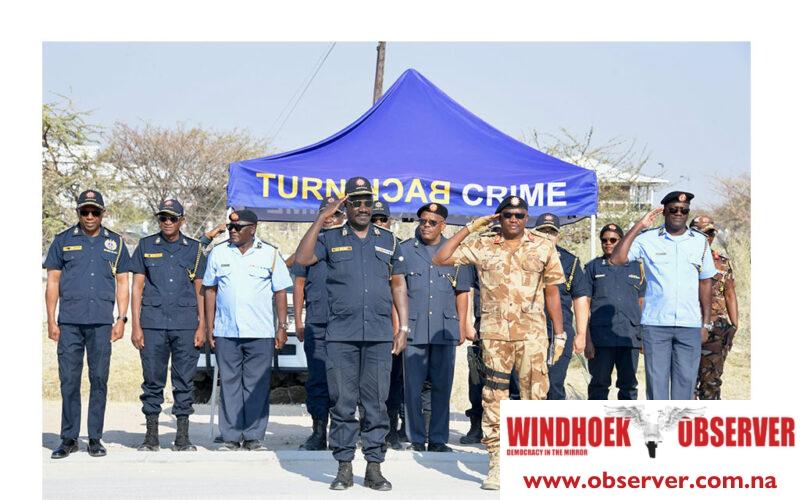Niël Terblanché
The Namibian Police’s top command structure has gathered in Ongwediva to review the implementation of the 2022 conference resolutions, identify new challenges, and strategise on improving policing services.
The workshop is timely given the upcoming national elections, which stress the need for enhanced measures to guarantee public order and safety.
Dr. Albert Kawana, the minister of home affairs, immigration, safety, and security, opened the workshop by highlighting the importance of planning in ensuring organisational efficiency.
According to Kawana, failure to plan is equivalent to planning to fail.
“This workshop is a prime opportunity for the Senior Commanders to review past decisions, assess current challenges, and strategise on ensuring public safety and security,” said Kawana.
He called for strategies that extend beyond operational and administrative functions to include a review of internal and external policies, such as the Police Act.
The Minister assured the gathered police commanders that his office is ready to amend any outdated legislation in light of modern policing dynamics.
Kawana acknowledged the significant challenges faced by the police in the past, including an ageing fleet, limited promotion opportunities, and a lack of accommodation and uniforms.
He expressed gratitude for the government’s financial support, which allowed for the purchase of additional vehicles, promotions for over 7 000 officers, and training for more than 1 000 new recruits.
“Despite these efforts, high staff turnover remains a concerning issue,” he said.
The minister stressed the necessity of training and retraining police officers.
“A single well-trained officer is far more effective than a group of untrained officers,” he said.
Kawana urged the Senior Command to prioritise training to ensure an efficient and effective police force.
Lieutenant General Joseph Shikongo, Inspector General of the Namibian Police, stressed the significance of the conference, noting the absence of an in-person meeting in 2023 due to competing priorities.
Shikongo said that this year’s theme, “Embracing innovation to navigate policing challenges,” reflects the need to assess and address the resolutions from the 2022 conference and to strategise on current and emerging challenges.
He highlighted the prevalence of crime, with more than 110 551 criminal cases recorded in the last financial year, including serious offences such as robbery, rape, and domestic violence.
“The Khomas region reported the highest crime rates, followed by Oshana, Otjozondjupa, and Erongo regions,” he said.
Shikongo acknowledged complaints regarding poor service delivery at some police stations and investigation units.
He stressed the need for strategies to address such issues and improve the professionalism and conduct of police officers.
“Budgetary constraints remain a significant challenge, impacting police operations. Despite these limitations, the police are committed to utilising available resources optimally to deliver effective services,” he said.
The five-day workshop will focus on devising and adopting SMART (specific, measurable, achievable, realistic, and time-bound) resolutions to enhance policing services.
“The workshop aims to streamline operational and administrative processes, enhance community involvement, and coordinate with other law enforcement agencies to combat crime effectively and ensure a safe environment for all citizens,” General Shikongo said.
Both the Minister and the Inspector General reiterated the government’s commitment to supporting law enforcement efforts.
They expressed confidence that the workshop will result in concrete, implementable resolutions that will significantly improve public safety and policing services across Namibia.




